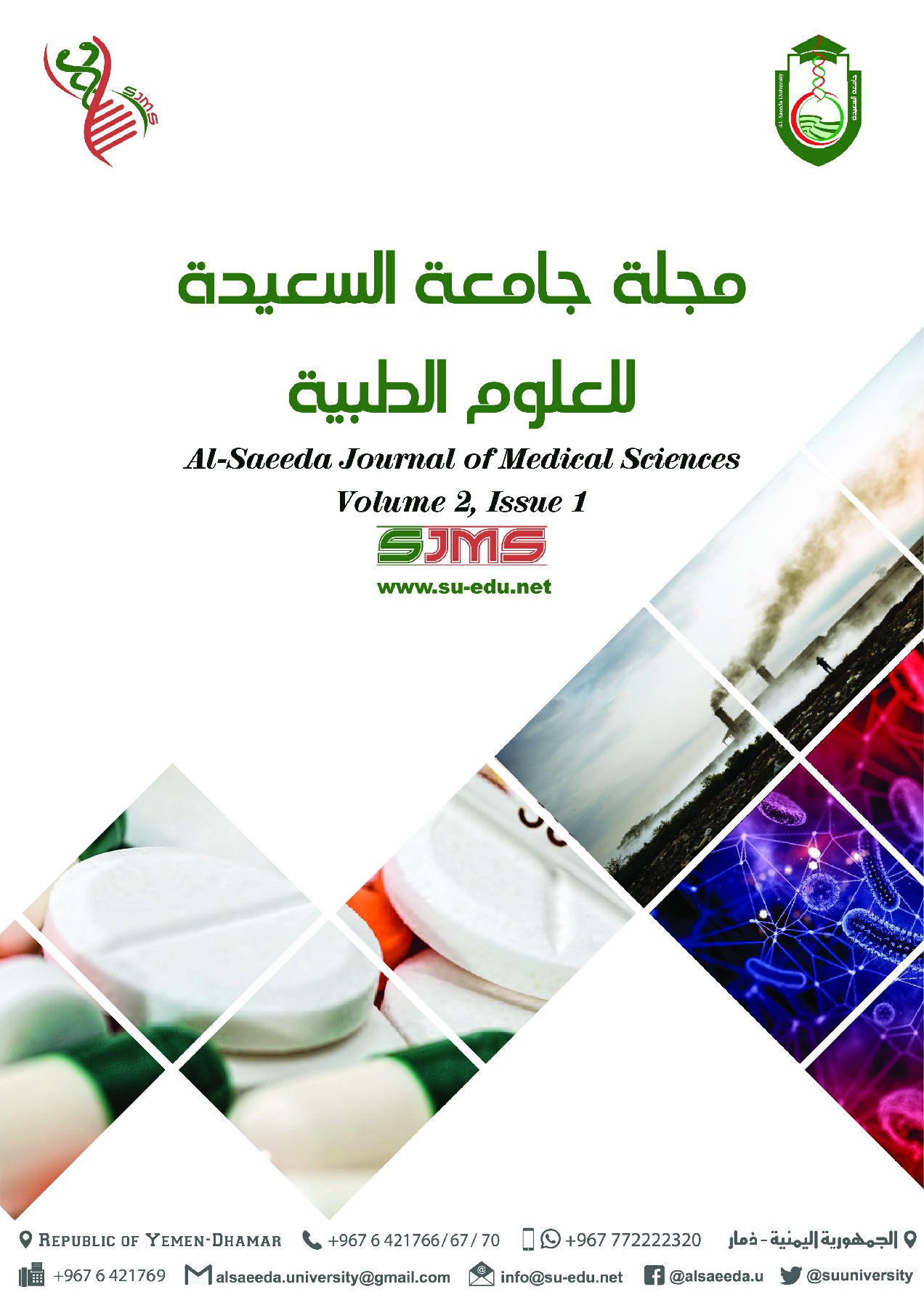
Al-Saeeda Journal of Medical Sciences
Yazarlar: Ahmed Al-Washli, Ahmed G. Al –Akydy, Khaled A. Alhumaidh, Samir Alsenafy
Konular:-
Anahtar Kelimeler:Antibiotics,Intensivecare unit,Rophylaxis,Treatment
Özet: The high prevalence of infections in critically ill ICU patients is associated with high antibiotic consumption. Objectives:Thus,this study aimed atan analyzed antibiotic in a general ICU department. Methods: A cross-sectional study carriedout in the intensive Care Unit,Dhamar Hospital, fromApril 2015 to August 2015bycategorizing the indications for antibiotic use as prophylaxis or treatment therapy. Results:In all, 75 patients were admitted to ICU, distributed as (76 %) males and 24% females, the highest infection was detected in the age groups 50-60 years(37.2%), most patients hadcardiac vascular diseases (30.3%), followed by accidental causes(21.3%). The highest period of patient stay in ICU was 3 days (21.3%). The most commonly prescribed group of antibiotics in ICU during this study in Dhamar hospital were cephalosporins (86.7%), where the third generation of cephalosporins especially Ceftriaxone was the most commonlyprescribed antibiotic in ICU (77%). Most antibiotics used in ICU for treatment of diseases or symptoms, which represent 60% whereas 40% of antibiotics used for prophylaxis. More patients about 93.3%, which used antibiotics in ICU, utilize antibiotics without present any sensitivity. Inconclusion, surveillance studies on antibiotic use, indications for prescription, causes of infection, types of used antibiotics may help to develop local strategies to reduce antibiotic use and then in costs. In addition, studies evaluating the optimal duration of antibiotic therapy may help to reduce unnecessary antibiotic use.